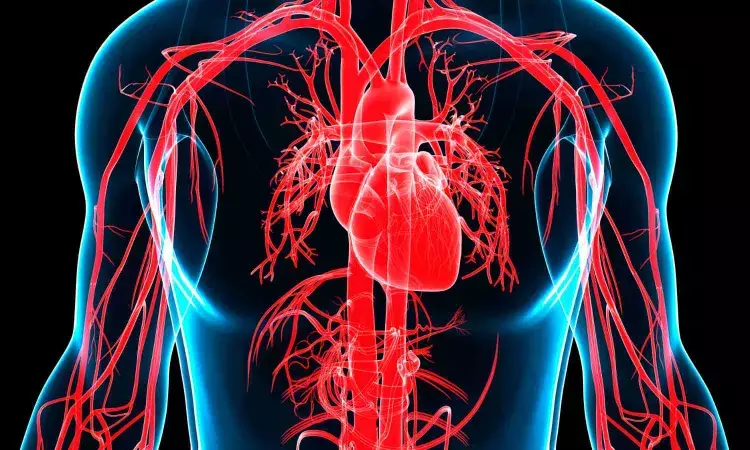- Home
- Medical news & Guidelines
- Anesthesiology
- Cardiology and CTVS
- Critical Care
- Dentistry
- Dermatology
- Diabetes and Endocrinology
- ENT
- Gastroenterology
- Medicine
- Nephrology
- Neurology
- Obstretics-Gynaecology
- Oncology
- Ophthalmology
- Orthopaedics
- Pediatrics-Neonatology
- Psychiatry
- Pulmonology
- Radiology
- Surgery
- Urology
- Laboratory Medicine
- Diet
- Nursing
- Paramedical
- Physiotherapy
- Health news
- Fact Check
- Bone Health Fact Check
- Brain Health Fact Check
- Cancer Related Fact Check
- Child Care Fact Check
- Dental and oral health fact check
- Diabetes and metabolic health fact check
- Diet and Nutrition Fact Check
- Eye and ENT Care Fact Check
- Fitness fact check
- Gut health fact check
- Heart health fact check
- Kidney health fact check
- Medical education fact check
- Men's health fact check
- Respiratory fact check
- Skin and hair care fact check
- Vaccine and Immunization fact check
- Women's health fact check
- AYUSH
- State News
- Andaman and Nicobar Islands
- Andhra Pradesh
- Arunachal Pradesh
- Assam
- Bihar
- Chandigarh
- Chattisgarh
- Dadra and Nagar Haveli
- Daman and Diu
- Delhi
- Goa
- Gujarat
- Haryana
- Himachal Pradesh
- Jammu & Kashmir
- Jharkhand
- Karnataka
- Kerala
- Ladakh
- Lakshadweep
- Madhya Pradesh
- Maharashtra
- Manipur
- Meghalaya
- Mizoram
- Nagaland
- Odisha
- Puducherry
- Punjab
- Rajasthan
- Sikkim
- Tamil Nadu
- Telangana
- Tripura
- Uttar Pradesh
- Uttrakhand
- West Bengal
- Medical Education
- Industry
Ear clip stimulation of vagus nerve promising as POTS treatment, finds study

A newly published study from the University of Oklahoma College of Medicine at OU Health Sciences shows that stimulating the body's longest nerve through a clip on the ear significantly lessens the woozy symptoms of POTS, or postural tachycardia syndrome.
People who suffer from POTS experience symptoms every time they stand up after they’ve been sitting or lying down-dizziness, palpitations and a dramatic increase in heart rate are among the most common. Millions of people suffer from POTS, and it has increased significantly since the onset of the COVID-19 pandemic because the virus can affect the heart.
The new study is led by Stavros Stavrakis, M.D., Ph.D., an associate professor of cardiology in the OU College of Medicine. The study focused on the vagus nerve, sometimes called the body’s “superhighway” because it controls functions such as digestion, breathing and heart rate. As the longest nerve in the body, the vagus begins in the brain, runs through the heart and lungs, and ends in the intestines-and it can be stimulated on the outside of the ear.
About half of the study participants were given an electrical stimulation device with a clip they placed on the tragus, which is the small piece of cartilage outside the ear canal. The device delivered a low-level electrical stimulation to the vagus nerve. Participants used the device for one hour each day for two months. The other half of the participants, the control group, received a placebo treatment. The study was double-blinded, meaning neither the participants nor the researchers knew which patients were receiving the real treatment.
Stavrakis and his research team discovered that POTS symptoms were significantly lessened in people receiving vagus nerve stimulation. Their heart rates still increased upon standing, but not as much-15 beats less per minute than without the stimulation. In addition, they discovered that the treatment decreased the surge of adrenaline in the body and the level of inflammation in the blood, which also contributes to POTS.
“There is a lot of excitement about vagus nerve stimulation in the field of cardiology,” Stavrakis said. “It is non-invasive and inexpensive, and it doesn’t have side effects the way medication would. I’m optimistic that it will become a treatment that can help improve the quality of life for people with POTS.”
The study was published in JACC: Clinical Electrophysiology, a prestigious journal of the American College of Cardiology. Stavrakis also presented the results of his study as a late-breaking clinical trial at the annual meeting of the Heart Rhythm Society.
Stavrakis has researched vagus nerve stimulation for about 15 years. He first studied its use for treating atrial fibrillation (an irregular heartbeat), discovering that vagus nerve stimulation decreased atrial fibrillation by 85% when patients were monitored compared to those who didn’t receive the treatment. His next steps are to conduct larger clinical studies for both POTS and atrial fibrillation to better understand how the treatment works, which patients are best suited for the treatment, and how long its benefits last.
Vagus nerve stimulation is somewhat unusual in a complex medical field like cardiology, but its promise is its ease of use and affordability. Stavrakis envisions a future where people with conditions like POTS could wear a wireless stimulation device resembling an ear pod.
“With advancements in technology, people could be listening to music on their phone while also stimulating their vagus nerve,” he said. “We’re not there yet, but I think it’s the way of the future.”
Reference:
Stavros Stavrakis, Praloy Chakraborty, Kassem Farhat, Seabrook Whyte, Lynsie Morris, Zain Ul Abideen Asad, Brittany Karfonta, Juvaria Anjum, H. Greg Matlock, Xue Cai, Xichun Yu, Noninvasive Vagus Nerve Stimulation in Postural Tachycardia Syndrome: A Randomized Clinical Trial, JACC: Clinical Electrophysiology, 2023, https://doi.org/10.1016/j.jacep.2023.10.015.
Dr Kamal Kant Kohli-MBBS, DTCD- a chest specialist with more than 30 years of practice and a flair for writing clinical articles, Dr Kamal Kant Kohli joined Medical Dialogues as a Chief Editor of Medical News. Besides writing articles, as an editor, he proofreads and verifies all the medical content published on Medical Dialogues including those coming from journals, studies,medical conferences,guidelines etc. Email: drkohli@medicaldialogues.in. Contact no. 011-43720751


